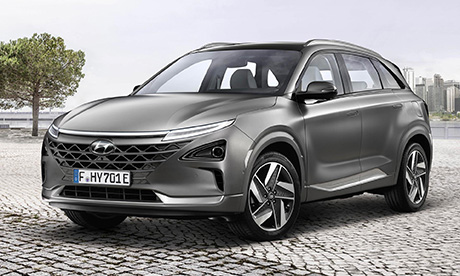An alternative to the heavily promoted electric vehicles of the future is hydrogen-powered cars. Currently, in the Czech Republic, only private refueling stations are in operation, such as the one in Neratovice. However, this will soon change. As vehicles powered by this fuel are introduced to the market, public refueling station projects are naturally emerging. By the end of the year, two stations are expected to open — in Prague and Litvínov.
Several companies are also preparing for "refueling" hydrogen and its storage. MOTOR JIKOV does not want to lag behind. "We have extensive experience in project management, construction, manufacturing, and servicing CNG stations. In this regard, we have much to offer. We are actively exploring the hydrogen route," emphasized Miroslav Dvořák, CEO of MOTOR JIKOV Group a.s. and 1st vice-president of the Automotive Industry Association AutoSAP. Compared to large CNG stations, the cost of hydrogen stations is roughly three times higher.
The recently approved Hydrogen Strategy for the Czech Republic by the government assumes that the ecological future will not be solely driven by electromobility. The state, like some other countries, will generously support hydrogen propulsion. It might become a successful competitor to battery-powered cars in the future, which manufacturers, including Czech Škoda Auto, currently focus on. High costs of acquiring hydrogen cars (up to two million Czech crowns) and producing hydrogen, especially green hydrogen from renewable sources, are largely covered by national and EU grants to investors.
The first hydrogen passenger cars in our country are branded Toyota. The Mirai model has sold a total of 15,600 units worldwide and is mainly aimed at raising awareness of hydrogen technology. The global leader, with 16,000 hydrogen SUVs sold, is Hyundai with its Nexo model.

According to the government strategy, the number of hydrogen-powered passenger cars could reach five thousand within four years and forty-five thousand within nine years. The vehicles are intended to expand the low-emission vehicle offerings and contribute to meeting the EU’s ecological commitments. The price is expected to equal that of electric vehicles within several years, although they are still significantly more expensive than conventional combustion cars.
Essentially, it is also an electric vehicle with an electric motor. Unlike fully electric cars, which rely on large and long-charging batteries, hydrogen cars (except for a small balancing battery) produce electricity themselves — in a fuel cell using intake air and hydrogen refueled within minutes. The initial purchase price and driving range are higher than many electric vehicles. Both types emit zero pollutants into the atmosphere, provided we do not consider the still predominantly "dirty" electricity and hydrogen production.
The investment amounts to 40–80 million Czech crowns. Annually, around 100,000 tons of hydrogen are produced in the Czech Republic. The government-approved Hydrogen Strategy predicts that by 2050, consumption will increase to 1.7 million tons per year. The Czech Republic will not be able to produce such quantities independently, so the strategy accounts for increased imports and investments in hydrogen transport and storage projects. Advocates highlight its ecological benefits, quick and simple refueling, and sufficient driving range.
Both battery and hydrogen cars are expected, with billions of subsidies, to become essential solutions to the planet’s ecological problems, significantly contributing to reducing greenhouse gases, notably carbon dioxide. However, such local measures will hardly save the world — Europe accounts for just eight percent of global CO2 emissions.
+125
years in the market
Kickstart your career at Motor Jikov – take a look at our job openings and get in touch with us.
MOTOR JIKOV Group a.s. company utilizes the opportunity to draw funds from European program grant resources.